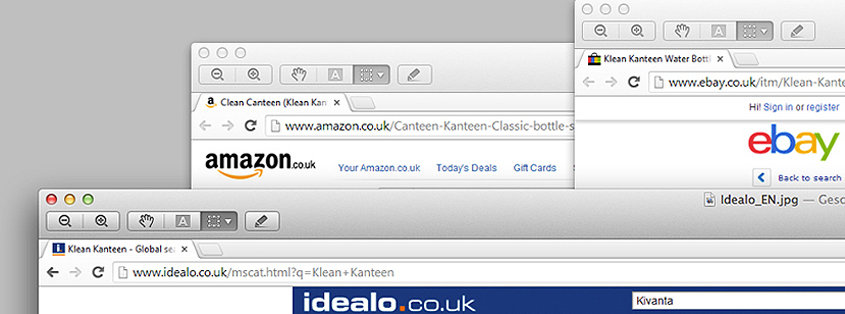Selling through marketplaces and price comparison portals
When you are selling online, there’s a huge variety of channels to promote your business. There’s not only your online shop but also many other channels, such as marketplaces. In this article, we explain the benefits of selling though marketplaces and product portals as well as the possibilities of this from your ePages shop.
Online marketplaces are like traditional shopping malls: they offer different products and services to customers within the same “establishment” or platform. Based on that, online marketplaces are online platforms that sell all kinds of products sorted by categories within the same web page. For customers, they work like a great online shopping mall where they easily can find what they are looking for and, at the same time, compare different offers and varieties. For you as a merchant, they are a further channel to display your products and generate additional sales.
Established marketplaces such as Amazon and eBay or product portals like Google Shopping have the potential to attract many new customers to your products or services. So much so, that 95% of the UK retailers sell their products on marketplaces, according to a study from Channel Advisor. So if you are not one of those merchants, keep in mind that using a multi-channel strategy can significantly increase your customer reach and the revenue of your shop. Integration is simple and can be done easily from the administration area of your online shop.
What is the difference between a marketplace and a product portal?
A marketplace is a type of e-commerce site where different merchants sell their products on one platform. These sites do not sell products themselves, like for example: eBay.
A special case would be Amazon, since it is one of the few marketplaces both selling products from third parties and also selling their own products.
A price comparison portal is basically a search engine that compares products based on prices, features or other criteria. As well as the marketplaces, the product portals don’t sell products themselves but offer products and services from many online retailers. The majority of their customers are using these sites in order to find the cheapest prices for a specific product. Examples for price comparison portals are Google shopping.
Either one or the other, you are able to easily integrate your products from the administration area of your ePages online shop.
What are the benefits of selling through marketplaces or price comparison portals?
Listing your products in one of the many existing websites could mean an important benefit for your business. By selling on these online platforms, you can…
- Increase revenues: Amazon alone attracts about 165 million visitors every month – and these can be turned into sales opportunities for your shop and your products. According to an Amazon executive, sellers report a 50% increase in sales on average when they join Amazon Marketplace.
- Acquire new customers: Nobody visits Amazon or eBay searching for your store. However, they may be searching for your type of product and end up finding – and buying – one of yours. If they are satisfied with your services, they may become regular customers for you.
- Analyse your competitors: Not only will you position your products to new customers, but also be able to compare them, their features and prices with your competitors. Your products will appear in the category pages together with many other similar products that offer more or less the same benefits. Don’t be overwhelmed and benefit from it: by knowing what and how your competitors are selling, you will be able to better understand your market in order to offer your customers what they are looking for.
- Reach international markets: Marketplaces usually are multi-language platforms which help you lever the language barrier of internationalising your business.
- Save money on traditional offline marketing trying to reach larger targets.
What marketplaces are available in your ePages shop?
Your ePages online shop has integrations with several marketplaces, such as eBay, Amazon, PriceMinister, and also with price comparison portals like Twenga, Google Shopping and Kelko, among others. All these integrations can be found in your administration area under Marketing >> Product portals.
Additionally, in case you want to sell your products in other product portals that don’t appear in the list, you can easily integrate new additional sites by clicking on Own portals. To do so, you just need to create an account in the portal where you want to start selling, add it in your shop’s administration area and then follow the instructions there.
For many potential customers, marketplaces and price comparison portals are the simplest and most effective way when it comes to buying online. It is pleasant for buyers, as they can access a wide variety of products from the comfort of their couch, and also for merchants, as they can benefit from the reach of visitors received every day and have more possibilities of sales.
So if you do not want to be left behind and want to take advantage of the opportunities offered by the Internet, a marketplace is a channel that is worth considering.
ist Head of Marketing bei ePages.




Leave a Reply
Want to join the discussion?Feel free to contribute!